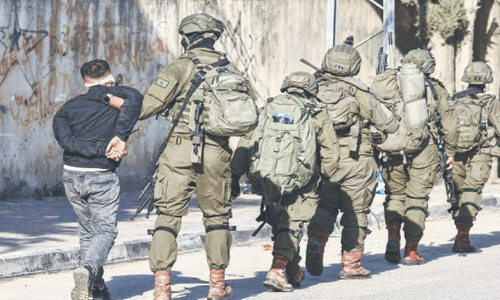ISLAMABAD, March 31: As the Supreme Court is grappling with the issue of widening the scope of Air Marshal (retd) Asghar Khan’s case by focusing its attention on the Intelligence Bureau (IB), the matter reminds one of recommendations made by the Zulfikar commission on enhancing proficiency of the civilian agency.
The two-decade-old report on the working of security and intelligence agencies by the commission has still to see the light of day. It had recommended that the IB should focus on covert anti-state and subversive activities of political parties or individuals, rather than on overt activities of such parties as these found ample coverage in the press.
“The interest of the IB in political parties should be more by way of analysis and assessment of the overall situation in the country,” said the report, whose copy is with Dawn.
Finalised in 1989, the report was presented before a three-judge Supreme Court bench, headed by Chief Justice Iftikhar Mohammad Chaudhry, hearing a 1996 petition of Asghar Khan who had requested the court to look into the allegations of ISI’s financing of politicians in the 1990 election to limit the victory of Benazir Bhutto’s Pakistan People’s Party.
The report was placed before the court in a sealed envelope by its office and was later returned and sealed again.
The Supreme Court still has to make up its mind on declassifying the report, along with other documents.
The commission was appointed by former prime minister Benazir Bhutto under then Air Marshal Zulfikar Ali Khan to review the working of security and intelligence agencies and recommend measures to improve their performance. It was set up in view of serious inadequacies and shortcomings in the structure of intelligence network and their working systems.
It had suggested to the government to enact a law to legalise the working of the IB. The charter of duties of the IB should be studied in detail, updated and, if necessary, revised in the light of present day requirements of the government. It called for appointing a JIC (joint intelligence committee) which should work under the National Security Council (NSC) to be headed by the prime minister.
The NSC would help provide a unified policy direction to and coordination between different intelligence agencies. The council should comprise ministers for foreign affairs, defence, interior and finance and the JIC chairman. The chairman of the Joint Chief of Staff Committee and chiefs of the three armed forces should attend its meetings as advisers.
The report said the JIC should steer intelligence functions within the framework of policy directives given by the NSC. The JIC should comprise a permanent chairman and secretaries of foreign affairs, defence, interior and finance and IB and ISI chiefs.
In view of the infiltration by agents of the Indian intelligence agency (RAW) in rural Sindh and Afghan agents in Khyber Pakhtunkhwa and Balochistan, the report suggested that counter-intelligence efforts in these areas should be stepped up.
“Surveillance, both technical and human, is a highly specialised field of work and, therefore, the IB needs to attain a high measure of proficiency in both.”
The report that monitoring of telephones should be undertaken only where absolutely necessary and each case should be authorised by a competent authority for a stated period. The IB should be divided into two separate departments, internal and security and counter-intelligence and external as the other. Alternatively, the external and counter-intelligence department should be established as a distinct directorate with sufficient strength of professional, whole time personnel to be trained and deployed on a war-footing on the lines of the Indian intelligence agency, RAW.
Working and utility of the links abroad should be reappraised and their task revised and updated from time to time. Central control of agents should be seriously considered, the report said.
Security of documents in sensitive ministries and the Prime Minister’s Secretariat should be improved. “Top secret” and “eyes only” documents should under no circumstances leave the premises and each document should be issued to an officer cleared for that classification and returned to the secret registry before the close of the day.
Likewise vetting of personnel in sensitive ministries and the PM Secretariat should be made very thorough and debugging and sweeping of these ministries and the secretariat should be more frequent. Telephones in the PM’s secretariat and residence should be checked for debugging everyday. The report said that experience has suggested that the IB and special branches suffered in proficiency on account of being manned by deputationists.
“The IB and four special branches and possibly the existing defence intelligence services put together can form a large cadre both for officers and other ranks. Steps should be taken to create these cadres. There are several training institutions which is wasteful. A single combined facility to cater for officers and men of the ISI Directorate, IB and special branches should be set up to ensure a high quality of output,” the report said.

































